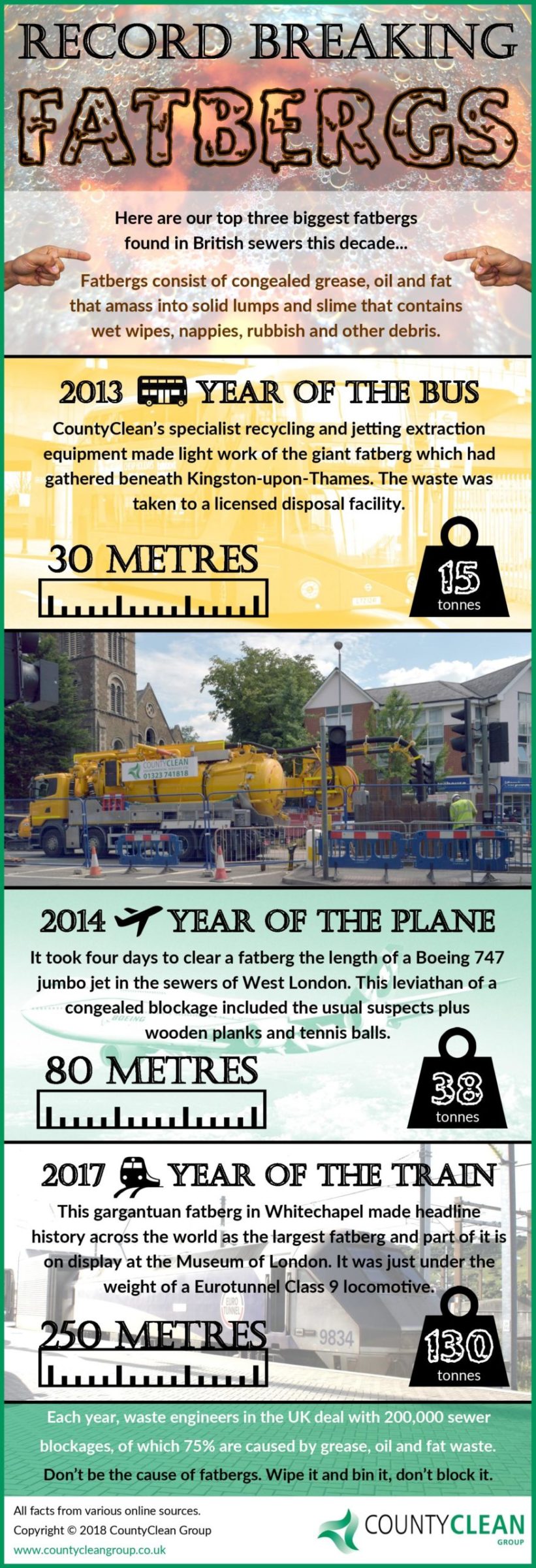When we took on the removal of a record breaking fatberg in London on behalf of Thames Water back in 2013, little did we know just how far the news would spread…
From BBC Corporation News in the UK to Fox 47 News in Michigan, USA and Mock the Week, the fatberg topic has been featured on hundreds of news reports around the world, and has even received it’s own TV programme with Fatberg Autopsy: Secrets of the Sewers.
So to celebrate three of the biggest record breaking fatbergs in British sewer history, we have created this infographic which provides statistics about some of the most disruptive congealed concrete like masses that consist of grease, oil, fat, wet wipes, nappies, rubbish and other debris.

2013: The Year of the Bus
Our highly skilled team cleared a double decker bus sized fatberg from Kingston using specialist recycling and jetting extraction equipment. We broke the fatberg down to sludge to enable our Kroll recycling unit to vacuum the waste up and remove to a licensed disposal facility.
2014: The Year of the Plane
It took four days to clear a fatberg the length of a Boeing 747 jumbo jet in the sewers of West London. Not only did it contain the usual fat and debris, but the drainage engineers also discovered wooden planks and tennis balls.
2017: The Year of the Train
This monster fatberg from Whitechapel weighed almost as much as a Eurotunnel Class 9 locomotive and due to it’s astounding size (10 metres longer than London’s Tower Bridge) has received the most media interest with part of it now on display at the Museum of London.
Think before you flush…
According to Thames Water, there are an average of three fat-related blockages every hour in London and the Thames Valley. Had these fatbergs not been dealt with in the correct and professional manner, residents and businesses would have suffered huge disruption as raw sewage would have flooded properties and caused the sewer network significant damage.
Avoiding fatbergs would be possible if everyone were to follow these two simple tips:
- Think before you flush. Do not put wet wipes, sanitary items, nappies and other non-degradable items down the toilet.
Be aware that even if the wet wipes packaging says that they are flushable, they are not generally bio-degradable and will settle in the local sewer network to cause further blockages. - Cooking oils and fats should be disposed of correctly and not poured into sinks or drains, instead use containers for liquid and solid fat for disposal at recycling centres which can be found online or via your local authority.
